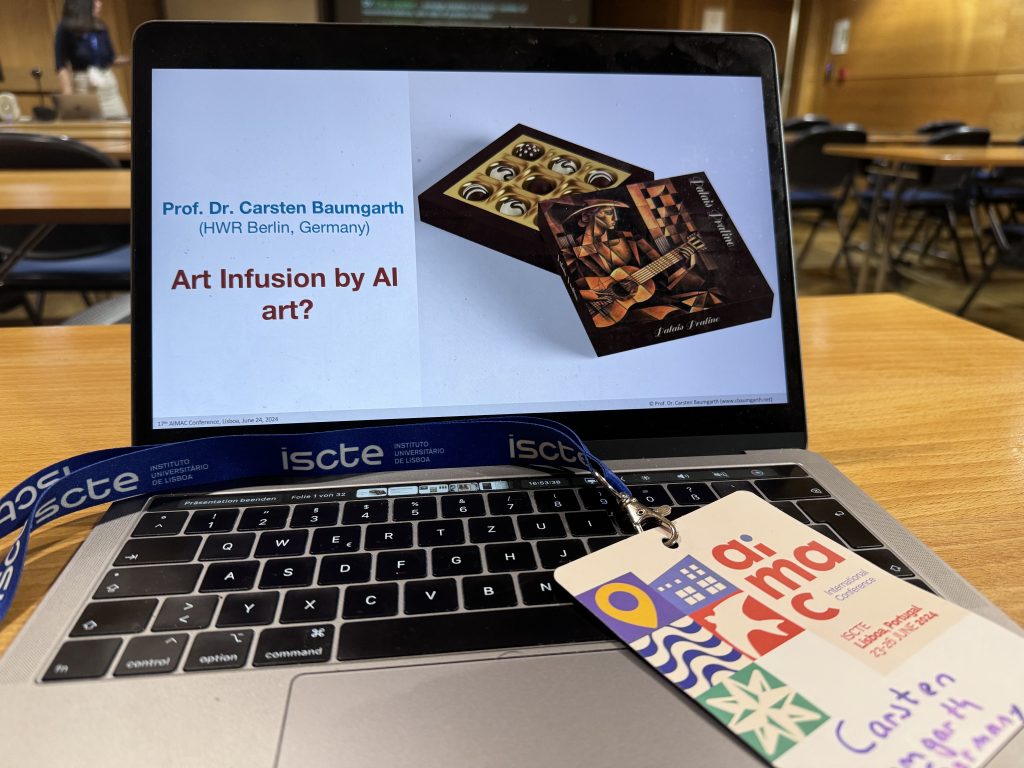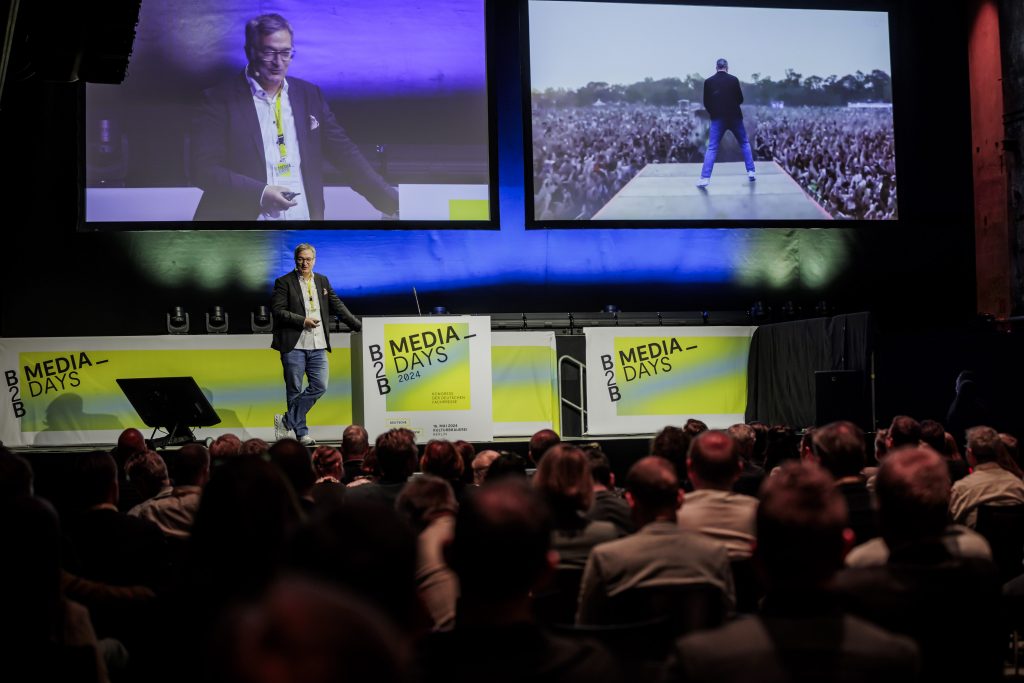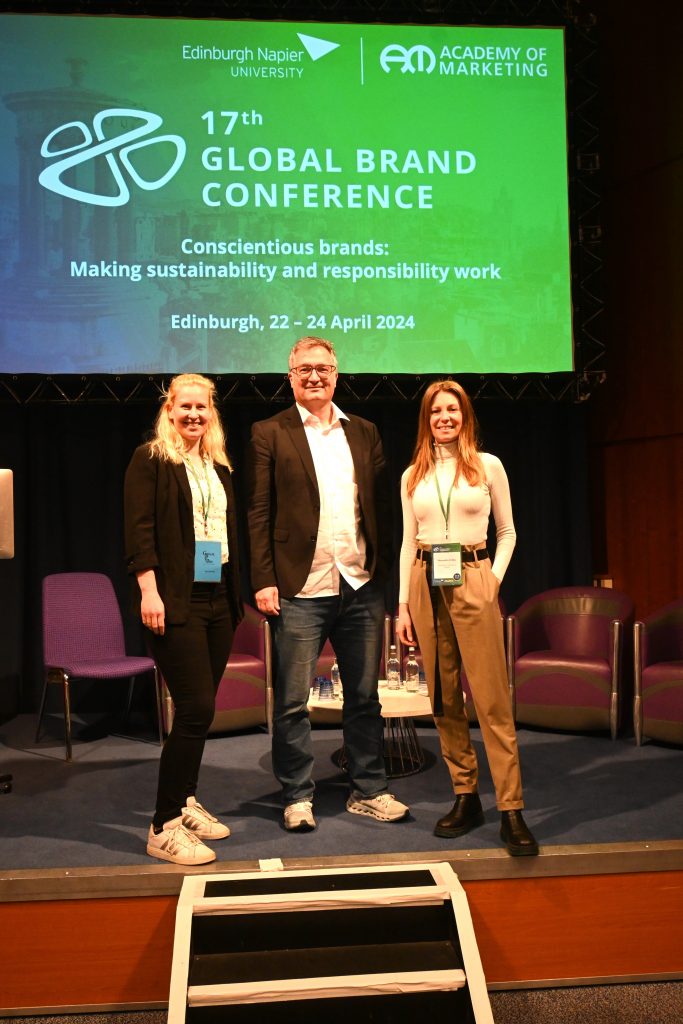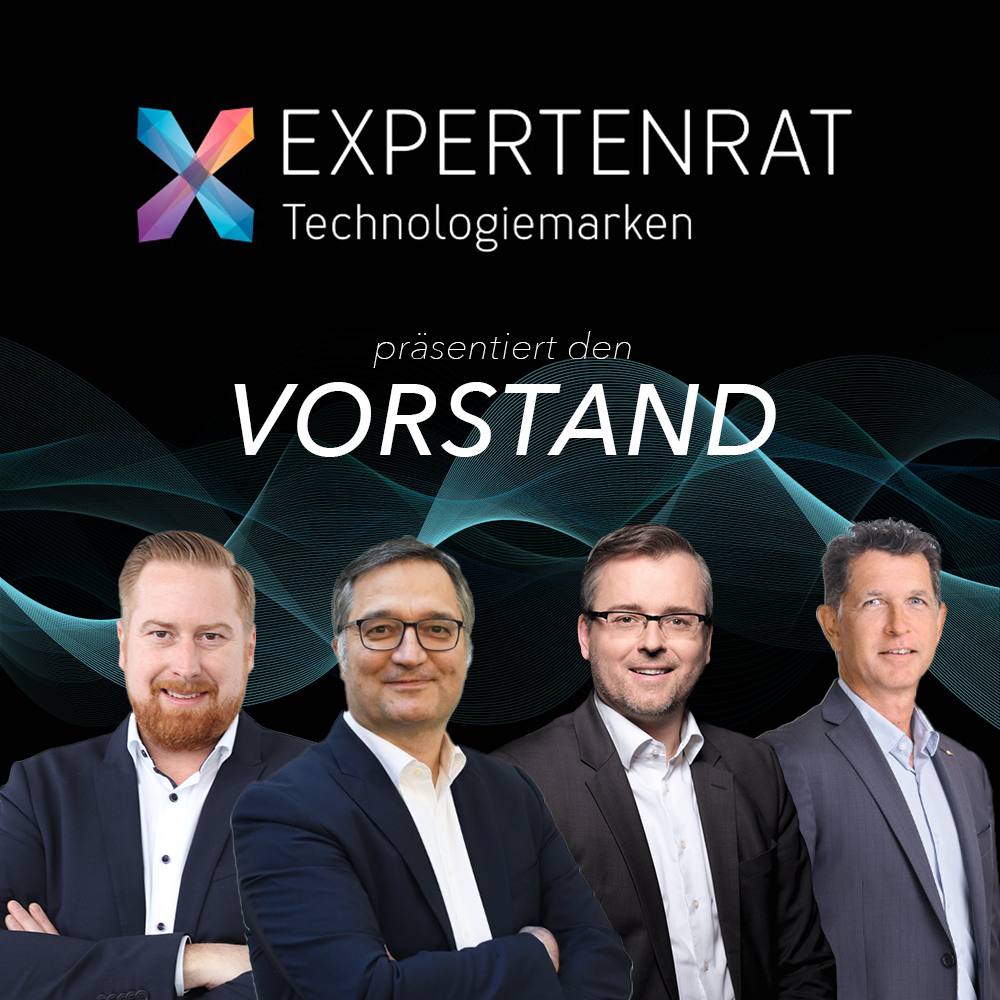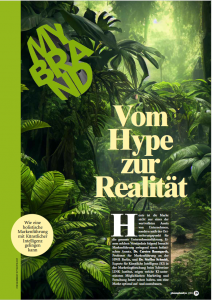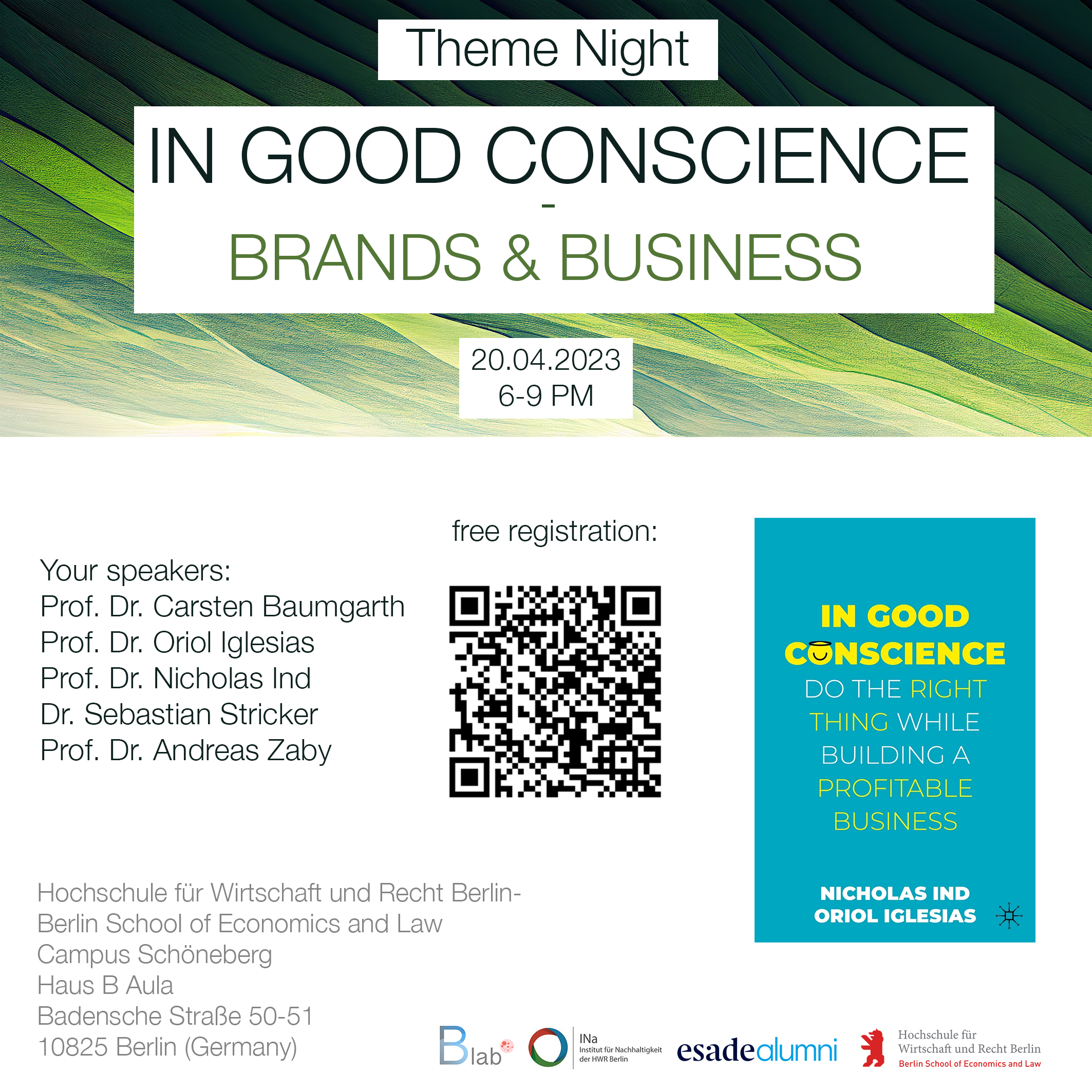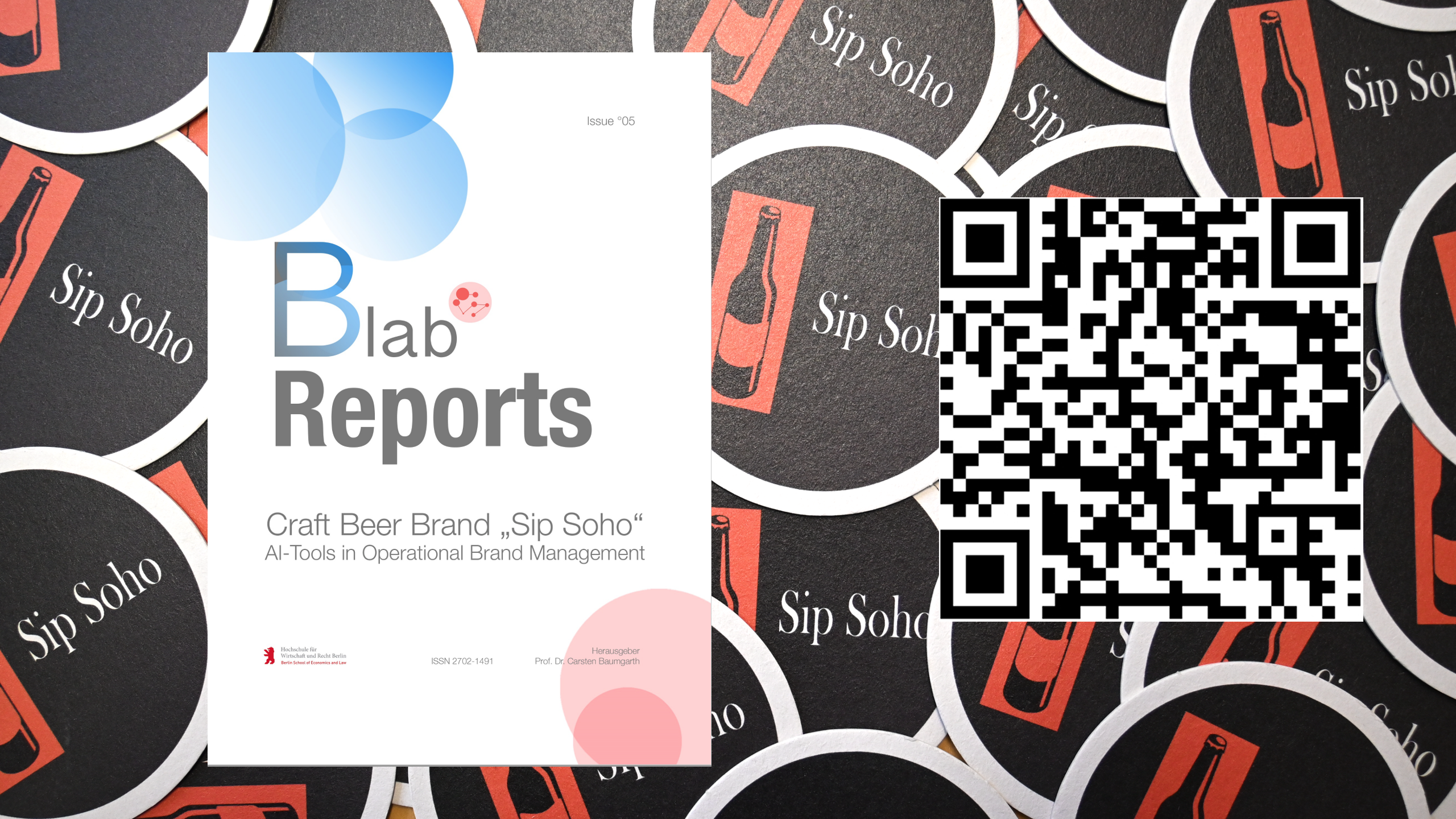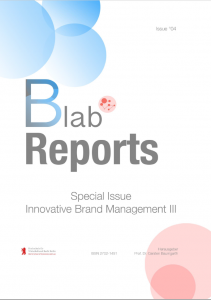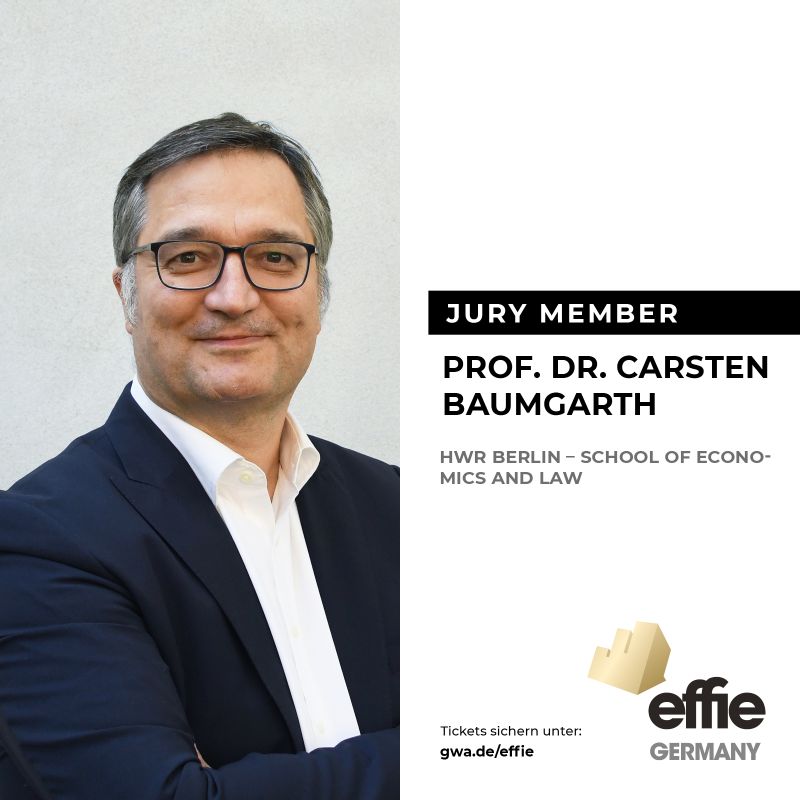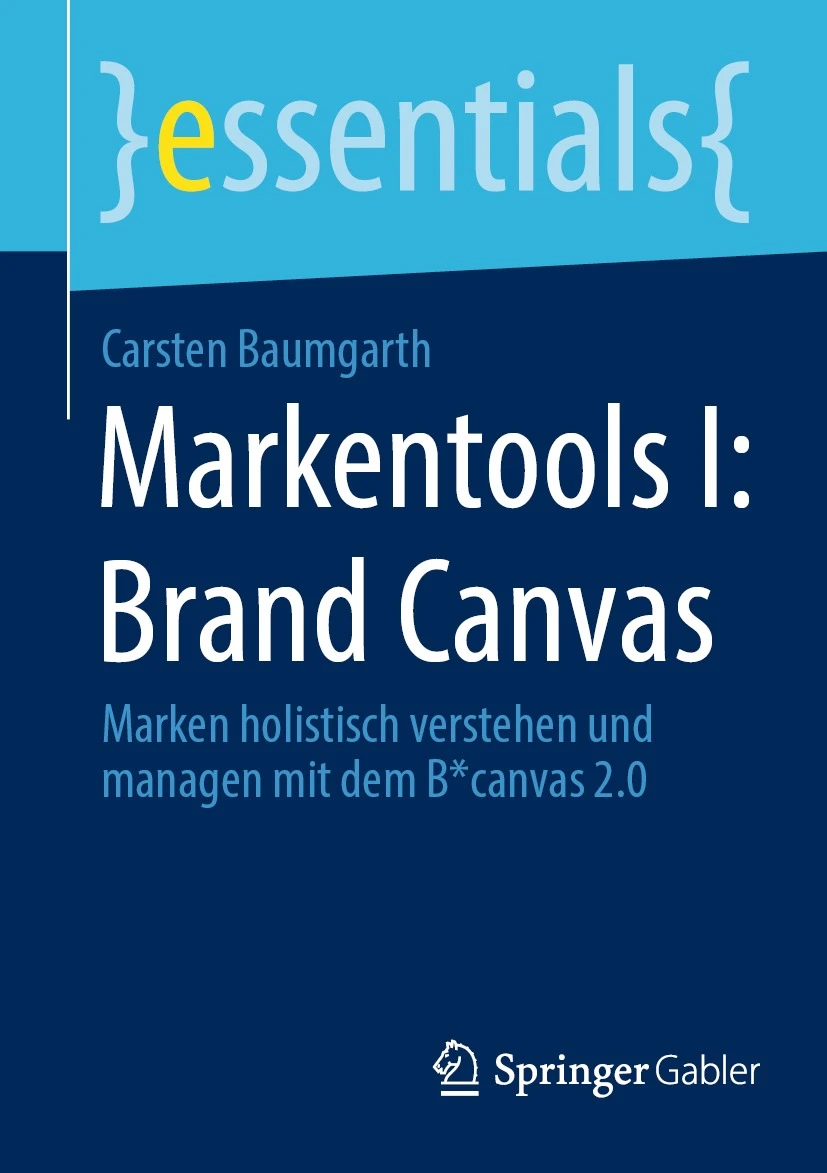Google Scholar
Citations: 6.167; h-Index: 32; i-Index: 89 (last update: July 2024)
ResearchGate
Research Interest Score: 2.133 (> 96 % all RG members: > 98 % all Marketing Researchers on RG) (last update: July 2024)
A list of all publications is available here.
Baumgarth, C. (2024). Negativ hilft maskulinen Marken. Markenartikel, 86(7), 54-55.
Baumgarth, C. (2024). Markenorganisation ist nicht gleich Markenorganisation. Markenartikel, 86(6), 46-47.
Baumgarth, C. (2024): Anthropormorphism. In: Elgar Encyclopedia of Consumer Behavior, Eds.: Gollnhofer, J.; Hofstetter, R.; Tomczak, T., Cheltenham, 18-21.
Baumgarth, C. (2024): Art Infusion. In: Elgar Encyclopedia of Consumer Behavior, Eds.: Gollnhofer, J.; Hofstetter, R.; Tomczak, T., Cheltenham, 25-27.
Baumgarth, C. (2024): CASA (Computer are Social Actors). In: Elgar Encyclopedia of Consumer Behavior, Eds.: Gollnhofer, J.; Hofstetter, R.; Tomczak, T., Cheltenham, 59-61.
Baumgarth, C. (2024): Technology Acceptance Models: TAM and UTAUT. In: Elgar Encyclopedia of Consumer Behavior, Eds.: Gollnhofer, J.; Hofstetter, R.; Tomczak, T., Cheltenham, 297-300.
Baumgarth, C. (2024): Remote work – real pain, but (still) few solutions. In: European Real Estate Brand Book 2024, Hrsg.: Steiner, H., Berlin, 27-30.
Baumgarth, C. (2024): Diversity – more of a nice to have than a strategic approach. In: European Real Estate Brand Book 2024, Hrsg.: Steiner, H., Berlin, 22-26.
Baumgarth, C. (2024): Progress and pain points of Employer Branding in the real estate industry. In: European Real Estate Brand Book 2024, Hrsg.: Steiner, H., Berlin, 16-21.
Baumgarth, C. (2024): Litmus test for your brand management. In: European Real Estate Brand Book 2024, Hrsg.: Steiner, H., Berlin, 11.
Baumgarth, C. (2024): Handschriften steigern die haptische Nutzung. Markenartikel, 86(5), 60-61.
Lambrecht, A.; Baumgarth, C.; Henseler, J. (2024): Impact of augmented reality on customer-based band equity: The role of narcissism, Proceedings of the 17. Global Brand Conference.
Kirkby, A.; Baumgarth, C.; Henseler, J. (2024). Have you changed my life as a brand professional? Drivers and barriers of the integration intensity of generative artificial intelligence for brand voice, Proceedings of the 17. Global Brand Conference.
Baumgarth, C. (2024). Von Followern und Calls-to-Action. Markenartikel, 86(4), 58-59.
Baumgarth, C.; Schmidt, S. (2024). Vom Hype zur Realität, planung & analyse, 51(1), 39-43.
Baumgarth, C. (2024): Experteninterview zu These 1 (KI wird die Effizienz und Effektivität der Markenführung massiv steigern). Trendpaper „Mit KI zur Exzellenz im B2B-Marketing – Chancen, Grenzen, Risiken, Hrsg. bvik, Augsburg, 9 – 11.
Baumgarth, C. (2024). KI: Booster für die Markenarbeit? Markenartikel, 86(3), 48-49.
Baumgarth, C. (224): Marken bröseln immer von innen. B2B Magazin, o. Jg., 12-18.
Baumgarth, C. (2024). Kann KI schon Marken führen? moving, o.Jg., 12-15.
Baumgarth, C. (2024). Nachhaltigkeit mit Nebenwirkungen. Markenartikel, 86(1-2), 64-65.
